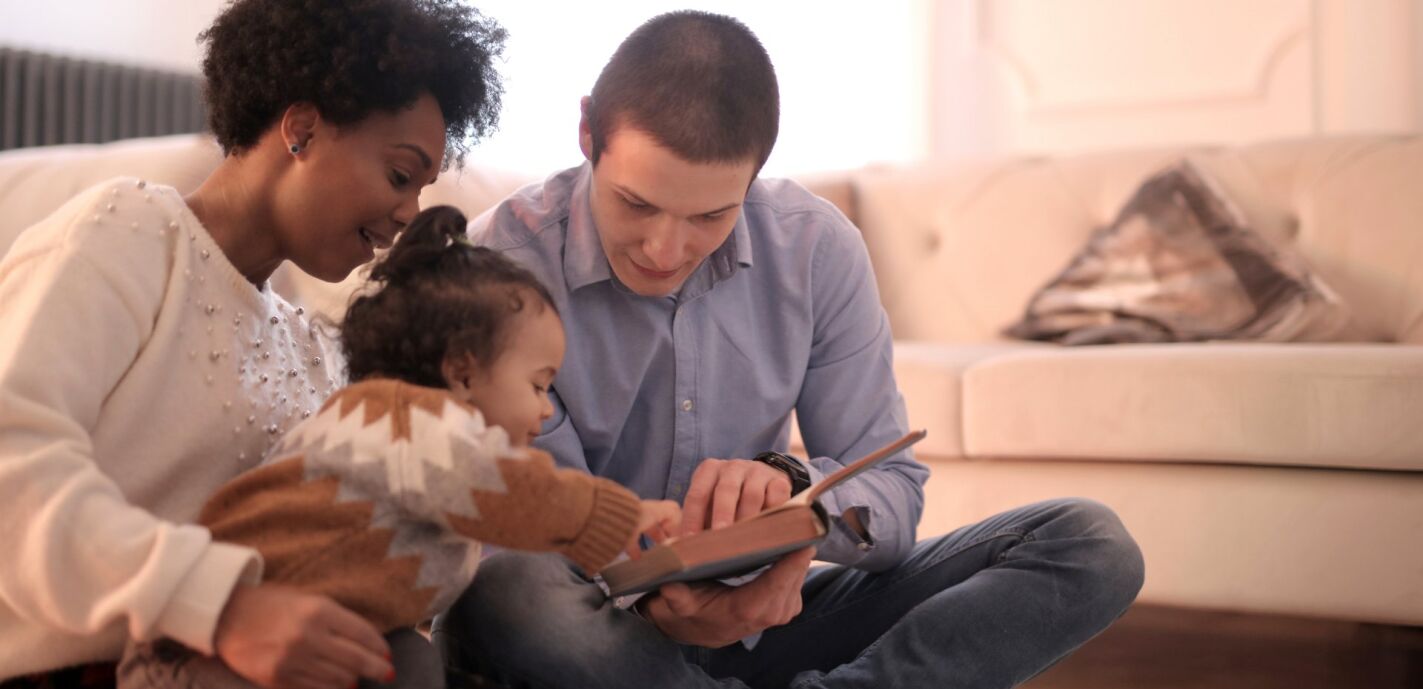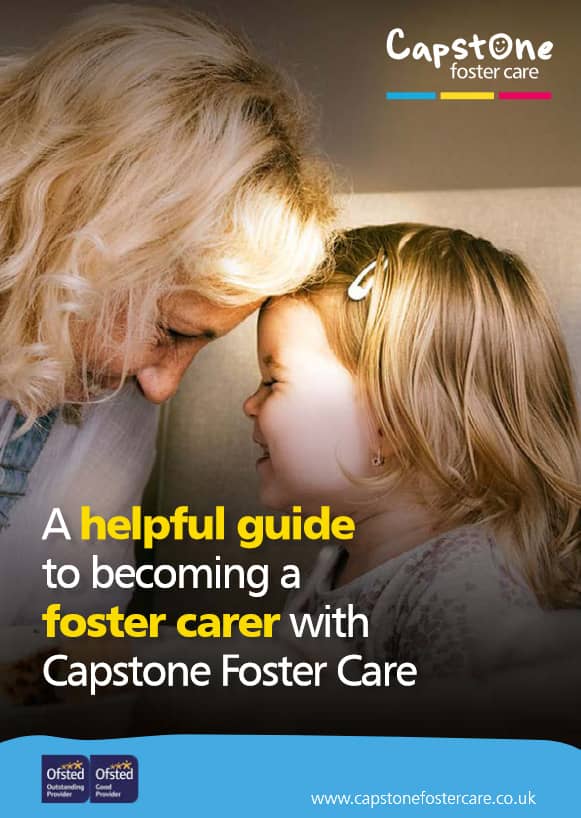


Fostering a disabled child
The role of an independent fostering agency
How to choose a foster care agency
Can I choose who I foster?
What are the benefits of fostering with an independent fostering agency?
What happens when a child is taken into care?
Fostering process: what happens on an initial home visit?
Fostering with local authority vs independent agency
A complete guide to becoming a foster carer
How Are Children in Foster Care Matched with Carers?
Foster Care Budgeting Tips
Becoming A Foster Carer
What is a Care Leaver?
What is a Foster Carer?
Fostering Regulations
How long does it take to become a Foster Carer?
What are the Foster Care requirements?
Changing IFA - Transferring to Capstone
8 reasons why a child may be taken into care
Fostering as a Career
Can you foster if you smoke or vape?
A guide to fostering assessments
LGBTQ+ Fostering
Equality, Inclusion & Anti-discriminatory Practice in Foster Care
What can disqualify you from foster care?
Can you foster if you’re on benefits?
Top transferable job skills to become a foster carer
Fostering as a same sex couple
Fostering while renting
Can you foster if you have mental health issues?
Is there an age limit for fostering in the UK?
Do foster carers get a pension?
How to foster a child: A step by step guide
How do DBS Checks Work?
Can I foster if...?
Mythbusting the top 10 Foster Care Myths
Can I foster if I am disabled?
LGBT Fostering Mythbusting
Can I foster if I have pets?
Can I Foster A Child?
Can I Foster and Work?
Can you Foster with a Criminal Record
Can Single People Foster?
LGBT Family and Foster Care
Fostering across Cultures
Muslim Fostering
Christian Foster Care
Sikh Fostering
Empty Nest Syndrome and Foster Care
Can I Foster?
What is the difference between residential care and foster care?
Fostering Babies and Young Children
What is Kinship Care?
Fostering Babies - Myths
Focusing on Parent & Child Fostering
Fostering Siblings
Fostering Teenagers
Fostering Teenagers - Breaking down the Myths
Fostering Unaccompanied and Asylum Seeking Children
Mother and Baby Foster Placements
Private Fostering
How does therapeutic fostering work?
Young Children Fostering Placements
Difference between short and long-term fostering
Types of self-harm
A Guide to the Foster Care Handbook
Reunification and Birth Parents: A Guide for Foster Carers
What is an EHC Plan? A Guide for Foster Carers
How to prepare a child for becoming a care leaver
Children who foster: impact of fostering on birth children
Fostering LGBTQ+ Youth
How to prepare your home for a foster child
How to help a lonely child: A Guide for Foster Carers
What are the National Minimum Standards for Fostering Services?
10 tips for foster children's education
How to prepare your foster child for secondary school
Tips for coping when foster placements end
Tips for foster parents during Coronavirus
What happens if foster parents get divorced?
5 ways to manage Mother's Day with foster children
Tips for managing foster children's bedtime routines
How to handle foster child bullying
Fostering allowances and the gender pay gap
What discounts can foster carers get?
How to adopt from Foster Care
5 ways to manage Father's Day for children in foster care
8 most common fostering challenges
FosterTalk Membership with Capstone Foster Care
Supporting foster children's contact with birth families
A guide to independent fostering
Keeping Children Safe Online: A Guide For Foster Carers
Movies About Foster Care
Play-based learning strategies for foster carers
A Guide to the Staying Put Program
How to deal with empty nest syndrome
How to recognise signs of depression in foster children
Can you take a foster child on holiday?
Tips and advice on fostering with a disability
10 tips on connecting with your Foster Child
Fostering vs Adoption - What's the difference?
How Fostering can change a future
How to adopt from Foster Care
How to encourage children to read in Foster Care
How to prepare a Foster Child's bedroom
Reading and Storytelling with Babies and Young Children
Supporting Children's Learning
The 20 most recommended books Foster Carers and young people should read
Things you can do when your children leave home
The impact of early childhood traumas on adolescence and adulthood
Anxious Disorders in Foster Children
What is sexual abuse and sexual violence
Foster Child behaviour management strategies
Foster Parent Advice: What to expect in your first year of fostering
Capstone's twelve tips at Christmas
10 celebrities who grew up in Foster Care
Could Millenials be the solution to the Foster Care crisis?
Do you work in Emergency Services?
Form F Assessor and Assessment Training
Foster Care Fortnight
Improving Children's Welfare - Celebrating Universal Children's Day
New Year - New Career - Become a Foster Carer
Young People Charities
When most people think of the fostering journey, they think of a baby being taken into care and needing a warm, loving home. It’s a primal urge to take care of the defenceless infant. It does happen that newborns and infants are taken into care. This happens in one of three instances:
1. A baby is born to a mother whose previous children have been removed from her for reasons of child protection.
2. The parents have drug and/or alcohol problems that prevent them from being able to care for the baby.
3. The baby has been given up for adoption by the parents and there is a period between the relinquishment of the baby and the adoptive parents stepping in.
This means that it is not impossible for foster parents to have a baby placed in their care. The placement might be for a short time before the adoptive parents come in, or it might be for several months or years while the birth parent or parents are fit to take care of children again. However, and this is something that any prospective foster carer must know, fostering babies and toddlers is not a common occurrence. Let’s take a look at the reality of fostering in the UK.
Statistically Speaking
Government statistical reports for children in public care in England during the period ending 31 March 2018 provides this pertinent statistic: 6% of all children in care were under a year old.
Since we are looking at the demographics of children in care at this point, it is interesting to get an overall picture. 13% of children were between 1 and 4 years old while most of them (39%) are 10 to 15 years old. 23% are 16 or over, and 19% are between 5 and 9 years old.
Since the focus here is on fostering babies, let’s take a deeper look at the reality of fostering babies in the UK.
If fostering babies is what motivates you to consider fostering, there is a need for you. It is just not likely the way you imagined looking after children taken into care. You see, there are babies in care, Not many, but there are a few.
One of the most urgent needs for foster carers is for those who can offer support to babies who come into care with their young parent.
This used to be known as mother and baby foster placement. Now it is more accurately known as parent and child fostering. It is a specialist foster placement and is the third most requested type of foster care.
The child might not be a baby, he or she could be a toddler. In some cases, more than one young child and a parent comprise the parent and child arrangement. The fostering situation may begin before the birth of the child.
As fostering babies is specialist type of fostering, focused fostering babies training is required, and this type of placement is not necessarily where your fostering career will begin.
When you foster a parent and child, the situation is different. The goal still is to protect the child, but you do not step into the role of parent. You play a double role in this relationship:
On one hand, you are there to help the parent learn the skills needed to be a parent and to encourage them to develop the parental skills. There are tasks involved in parenting and the young parent may have no idea what these are or how to perform them.
For example, there are health visits and appointments to ensure the baby is healthy and kept healthy. Your fostering job here is to help the parent learn these duties.
On the other hand, you must make sure that the child is safe. Sometimes there is a child protection issue, and the infant must sleep in your room for its protection. When the baby wakes up in the middle of the night, you then wake up the parent to do what their parental duties to the child are.
Your relationship to the baby is at an arm’s length. You might feel that it would be easier to just feed the little one and change their nappies but that is not your role. You have to see that the baby is fed and kept clean, but you must help and encourage the parent to do the feeding and cleaning.
Another aspect of parent and child fostering is that you also act as an observer. You keep a close eye on how the parent is functioning and record his or her progress. You are obligated to provide feedback to social services.
A parent and child placement lasts about 12 weeks, sometimes going a little longer if the parent needs more training or more assessment of the parent’s ability to care for the baby is needed.
A young mother with no experience of holding a baby would not have the basic knowledge about looking after her child on her own. Practical help can be offered, and the skills learned. The placement could begin pre-birth to prepare young parents for the birth of the baby. Emotional help can also be offered but it may be more complicated to help the parent come to terms with how their lives have changed by having a baby.
Foster carers also assess the parent’s ability to be a parent. They work with a supervising social worker, community care representatives, children and family services, and an entire support network for social care. These members of the team help with the assessment and help transition the parent and child into life in the community.
It is a delicate relationship because the parent should be the child’s key attachment figure. The assessment and training process measure the parents’ ability to provide a healthy environment for the child. The results play a large role in whether the young parent can care for the child in the community, or whether the child is placed into long-term foster care or adopted.
Sometimes, the mum is barely past being an adolescent and is not ready or able to care for an infant by herself. However, being older is no guarantee of being able to handle the responsibility. In either case, she needs guidance and acceptance – so half of your energy goes to helping the parent.
Yet, the single most important part of your job is to provide the necessities of life and love to the baby. This calls for good health and a baby takes up a great deal of time and energy, and a baby can play havoc with your sleep.
There is no quiet time guaranteed during school hours as there would be with older children. This cuts into the time you need to take care of household chores, but you need this time for meetings with parents who are anxious to take their babies home.
Something else you must keep in the back of your mind is in spite of your best efforts, the baby may return to foster care on his or her own, but likely not while still a baby.
As mentioned, parent and child fostering is the third most needed type of foster care. The second most needed is sibling group fostering. While it is not always usual for babies to be placed in foster care, some of them can enter into care with their siblings.
Approximately, one-third of children taken into care are separated from their siblings. As the child has already been taken out of the family home, being separated from their brothers and sisters can only add to the stress the child feels.
Think about why children are removed from their homes. The events are beyond their control and are typically neglect, abuse, family violence, death, or illness. It is an emergency and often sibling groups, rather than a single child, need a temporary home. In the disruption that causes them to be taken out of their family home, all they have is each other.
When a person wishing to become a foster carer is assessed, one of the first questions asked is whether there is a separate bedroom for a foster child. Any child over the age of three is expected to have his or her own bedroom. Although, if the room is large enough, siblings may share a bedroom.
Sharing a bedroom can provide comfort and a sense of security to the children who have been thrust into an unknown situation. Knowing that they will not be separated from their siblings and that they will be with someone they love, is thought of to have a positive effect on their outcome in later life.
However, sibling groups are not always cohesive. There can be relationship difficulties between the children due to sibling jealousies or family dynamics. That’s why here at Capstone Foster Care, we work closely with our foster carers to provide specialist advice to make the most advantageous arrangement possible.
The stress of being taken into care can create anxiety in the children and it is possible that patient parenting skills and loving support can heal relationship difficulties. A social worker will be available, and a sibling group placement is discussed with the foster carer in advance.
If you are thinking about fostering and want to foster babies and are willing to train and prepare for parent and child fostering or have the space for sibling groups, there are limitations on fostering for families who have children under two years old. As well, Capstone Foster Care requires that your home be a non-smoking home.
Having said that, it cannot be emphasised enough that it is unusual for babies to be referred to Capstone (or any other independent fostering agency) on their own. Furthermore, neither local authorities nor independent fostering agencies are recruiting for people to foster babies only. The small demand that does exist is met by the current pool of carers.
However, there are many other children in need if you truly want to foster and make a difference to children’s lives. Fostering older children may allow a foster carer more flexibility to work part-time whilst children are at school, while the number one group with an urgent need for more foster carers is teenagers. In short, there’s always high demand for foster carers, and always children and young people who need help and support.
Guess what the number one group with an urgent need for more foster carers is, Teenagers. Find out more about fostering teenagers.
If you have a spare room and spare time, think about the good that you can do as a foster carer. For more information, contact Capstone Foster Care
If you’ve got any questions or would like to find out more about fostering with Capstone, fill out the form below.
An experienced fostering advisor from your local area will then be in touch.

Start the conversation today. Our team of friendly advisors are on hand to answer any foster care questions you may have. We can offer you honest and practical advice that can help you decide if becoming a foster carer is the right path for you.


